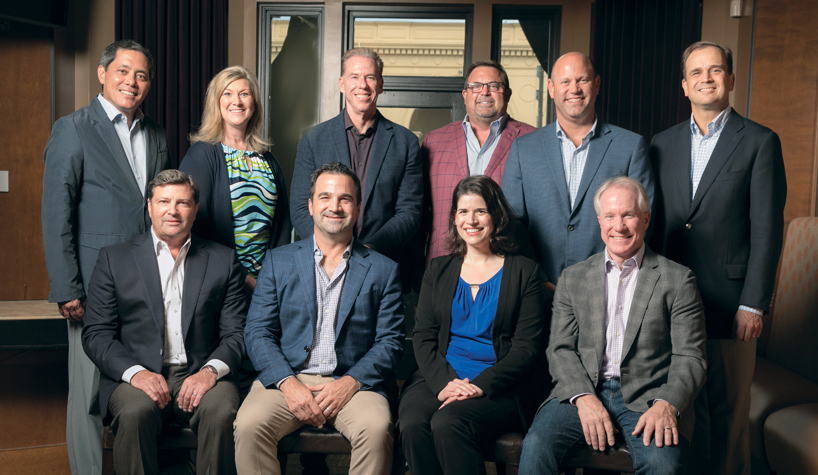COLUMBUS, OH—Hospitality companies have made social enterprise and philanthropy an integral part of their daily operations, not only because it is the right thing to do, but customers and employees want it that way.
Held here at Eleven restaurant, in conjunction with Rockbridge RTRX, which has raised millions of dollars for cancer research, the Hotel Business Executive Roundtable “Beyond the Boardroom: How Does Doing Social Good Benefit the Industry?” enabled 10 industry executives to discuss how responsible business is tied into their daily operations. The roundtable was hosted and sponsored by Rockbridge.
“It is an integral part of the way we do business in our organization, and it permeates through our organization,” said Rick Takach, chairman/CEO, Vesta Hospitality. “At Vesta, when we do our business planning on an annualized basis, we have five spokes that we focus on. Of course, we focus on our team members, our guests, our profits and our revenues, but the last part of that is responsible business. Everybody in our organization is focused on ‘What is responsible business?’ It is sometimes a matter of the way you do business, and it is also the way we get involved in our communities and support our communities, which is very important to us. It is just something, from a culture standpoint, that we believe.”
For Carrie David, chief HR officer, Interstate Hotels & Resorts, potential employees, especially among the millennial generation, are attracted to companies that are socially responsible. “Employees want to work for companies that give them a purpose and that they believe have a mission,” she said. “You see a lot of public companies focus on the ESG disclosures [Environmental, social and governance—the three central factors in measuring the sustainability and ethical impact of an investment in a company or business] now, but I think it is because there is just a groundswell of what people care about. I think some of it is the millennial generation, and some of it is the people reaching for more meaning period. It is going to become an increasingly integral part of business; it is important because employees are going to feel more engaged and they are going to feel like they are really driving something and getting meaning out of the work experience because of the way our companies give back to communities.”
Potential guests are also interested in a company’s commitment to social responsibility. “Some of our recent research shows 35% or more of customers research a company’s commitment to social responsibility and their purpose as a gauge to see whether they want to spend money with that company,” said Jon Witter, chief customer officer, Hilton. “My guess is that number is only going to increase over time.”
Look for more insights from panelists, including social responsibility as team building, new ways to support philanthropic causes and the benefits to the industry, in the Sept. 21 issue of Hotel Business.



